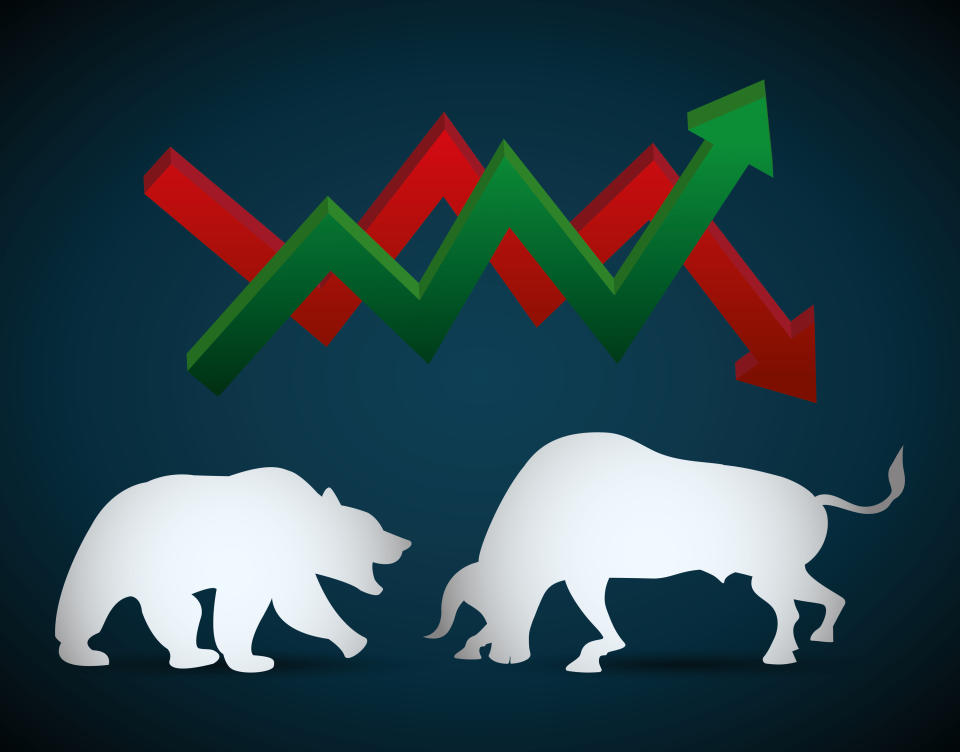Improve Your Retirement Income with These 3 Top-Ranked Dividend Stocks

Believe it or not, seniors fear running out of cash more than they fear dying.
Also, retirees who have constructed a nest egg have valid justifications to be concerned, since the traditional ways to plan for retirement may mean income can no longer cover expenses. Some retirees are now tapping their principal to make a decent living, pressed for time between decreasing investment balances and longer life expectancies.
In today's economic environment, traditional income investments are not working.
In the past, investors going into retirement could invest in bonds and count on attractive yields to produce steady, reliable income streams to fund a predictable retirement. 10-year Treasury bond rates in the late 1990s hovered around 6.50%, whereas the current rate is much lower.
The impact of this rate decline is sizable: over 20 years, the difference in yield for a $1 million investment in 10-year Treasuries is more than $1 million.
And lower bond yields aren't the only potential problem seniors are facing. Today's retirees aren't feeling as secure as they once did about Social Security, either. Benefit checks will still be coming for the foreseeable future, but based on current estimates, Social Security funds will run out of money in 2035.
Unfortunately, it looks like the two traditional sources of retirement income - bonds and Social Security - may not be able to adequately meet the needs of present and future retirees. But what if there was another option that could provide a steady, reliable source of income in retirement?
Invest in Dividend Stocks
As a replacement for low yielding Treasury bonds (and other bond options), we believe dividend-paying stocks from high quality companies offer low risk and stable, predictable income investors in retirement seek.
Look for stocks that have paid steady, increasing dividends for years (or decades), and have not cut their dividends even during recessions.
Going beyond those familiar names, you can find excellent dividend-paying stocks by following a few guidelines. Look for companies that pay a dividend yield of around 3%, with positive annual dividend growth. The growth rate is key to help combat the effects of inflation.
Here are three dividend-paying stocks retirees should consider for their nest egg portfolio.
Retail Opportunity Investments (ROIC) is currently shelling out a dividend of $0.15 per share, with a dividend yield of 4.02%. This compares to the REIT and Equity Trust - Retail industry's yield of 4.13% and the S&P 500's yield of 1.61%. The company's annualized dividend growth in the past year was 36.36%. Check Retail Opportunity Investments (ROIC) dividend history here>>>
Shell (SHEL) is paying out a dividend of $0.5 per share at the moment, with a dividend yield of 3.52% compared to the Oil and Gas - Integrated - International industry's yield of 3.14% and the S&P 500's yield. The annualized dividend growth of the company was 4.17% over the past year. Check Shell (SHEL) dividend history here>>>
Currently paying a dividend of $0.38 per share, Suncor Energy (SU) has a dividend yield of 4.01%. This is compared to the Oil and Gas - Integrated - Canadian industry's yield of 2.91% and the S&P 500's current yield. Annualized dividend growth for the company in the past year was 115.06%. Check Suncor Energy (SU) dividend history here>>>
But aren't stocks generally more risky than bonds?
Yes, that's true. As a broad category, bonds carry less risk than stocks. However, the stocks we are talking about - dividend -paying stocks from high-quality companies - can generate income over time and also mitigate the overall volatility of your portfolio compared to the stock market as a whole.
An advantage of owning dividend stocks for your retirement nest egg is that numerous companies, particularly blue chip stocks, raise their dividends over time, helping alleviate the impact of inflation on your potential retirement income.
Thinking about dividend-focused mutual funds or ETFs? Watch out for fees.
You may be thinking, "I like this dividend strategy, but instead of investing in individual stocks, I'm going to find a dividend-focused mutual fund or ETF." This approach can make sense, but be aware that some mutual funds and specialized ETFs carry high fees, which may reduce your dividend gains or income, and defeat the goal of this dividend investment approach. If you do wish to invest in a fund, do your research to find the best-quality dividend funds with the lowest fees.
Bottom Line
Whether you select high-quality, low-fee funds or stocks, seeking the steady income of dividend-paying equities can potentially offer you a path to a better and more stress-free retirement.
Want the latest recommendations from Zacks Investment Research? Today, you can download 7 Best Stocks for the Next 30 Days. Click to get this free report
Retail Opportunity Investments Corp. (ROIC) : Free Stock Analysis Report
Suncor Energy Inc. (SU) : Free Stock Analysis Report
Shell PLC Unsponsored ADR (SHEL) : Free Stock Analysis Report

 Yahoo Finance
Yahoo Finance 